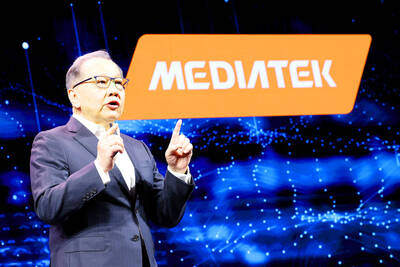Line Pay has become the most used mobile payment system in Taiwan, the Market Intelligence & Consulting Institute (MIC, 產業情報研究所) said on Wednesday.
The institute cited a survey, which found that 25.2 percent of respondents who used mobile payment systems favored Line Pay over Apple Pay, which was used by 17.9 percent of those surveyed.
The survey said JKo Pay (街口支付) came in third, taking a 10.9 percent share, followed by Android Pay with 9.9 percent and E.Sun Wallet (玉山 Wallet) with 5.2 percent.
Based on the survey, the top three systems made up a more than 50 percent share in the local mobile payment market, the institute said.
MIC analyst Nephy Hu (胡自立) said Taiwan has more than 20 mobile payment services, but only a few have proven to be popular.
Competition between local digital wallet services is escalating, Hu said, adding that the next couple of years could be critical for these operators to win a bigger share of the market or risk becoming marginalized.
According to the survey, the respondents said they mostly used mobile payments at convenience stores (62.3 percent), ahead of hypermarkets (37.7 percent), supermarkets (32.3 percent), department stores and shopping malls (30.2 percent), and restaurants (29.7 percent).
Hu said the nation’s four largest convenience store chains were quick to set up systems to support mobile payments and that is why consumers favored them.
The survey showed mobile payments were used for only 1.2 percent of purchases of more than NT$3,000 in 2016, but the figure rose to 15 percent last year.
The institute said consumers aged between 18 and 25 were the most willing of all Taiwanese to use mobile payments.

Taiwanese suppliers to Taiwan Semiconductor Manufacturing Co. (TSMC, 台積電) are expected to follow the contract chipmaker’s step to invest in the US, but their relocation may be seven to eight years away, Minister of Economic Affairs J.W. Kuo (郭智輝) said yesterday. When asked by opposition Chinese Nationalist Party (KMT) Legislator Niu Hsu-ting (牛煦庭) in the legislature about growing concerns that TSMC’s huge investments in the US will prompt its suppliers to follow suit, Kuo said based on the chipmaker’s current limited production volume, it is unlikely to lead its supply chain to go there for now. “Unless TSMC completes its planned six

Intel Corp has named Tasha Chuang (莊蓓瑜) to lead Intel Taiwan in a bid to reinforce relations between the company and its Taiwanese partners. The appointment of Chuang as general manager for Intel Taiwan takes effect on Thursday, the firm said in a statement yesterday. Chuang is to lead her team in Taiwan to pursue product development and sales growth in an effort to reinforce the company’s ties with its partners and clients, Intel said. Chuang was previously in charge of managing Intel’s ties with leading Taiwanese PC brand Asustek Computer Inc (華碩), which included helping Asustek strengthen its global businesses, the company

Power supply and electronic components maker Delta Electronics Inc (台達電) yesterday said second-quarter revenue is expected to surpass the first quarter, which rose 30 percent year-on-year to NT$118.92 billion (US$3.71 billion). Revenue this quarter is likely to grow, as US clients have front-loaded orders ahead of US President Donald Trump’s planned tariffs on Taiwanese goods, Delta chairman Ping Cheng (鄭平) said at an earnings conference in Taipei, referring to the 90-day pause in tariff implementation Trump announced on April 9. While situations in the third and fourth quarters remain unclear, “We will not halt our long-term deployments and do not plan to

NOT OVERLY PESSIMISTIC: While consumer electronics demand remains volatile, MediaTek CEO Rick Tsai said that tariffs would have limited effect on the company Chip designer MediaTek Inc (聯發科) yesterday said revenue this quarter would contract by 4 percent sequentially in the worst-case scenario on softer smartphone demand. Revenue is expected to be between NT$147.2 billion and NT$159.4 billion (US$4.6 billion-US$4.98 billion), compared with NT$153.31 billion last quarter, the company said. MediaTek said demand for smartphone chips would be flat or slide sequentially this quarter, while demand for smart devices and power chips would go up. Mobile phone chips made up 56 percent of the company’s total revenue last quarter. Gross margin of 46 to 49 percent is forecast for this quarter, compared with 48.1 percent last